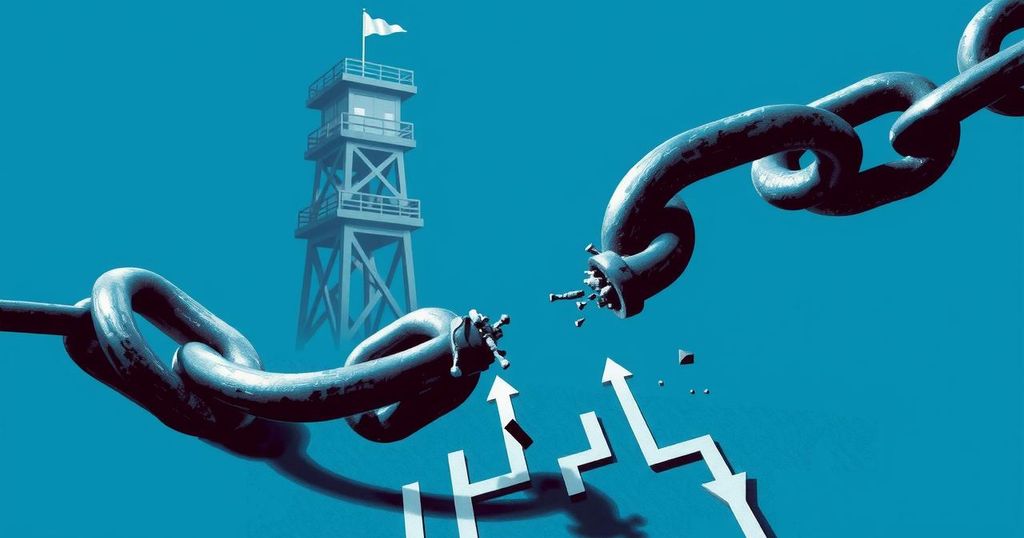Argentina exemplifies the risks developing nations, such as Pakistan, face when favoring short-term fixes over necessary structural reforms. Having relied heavily on the IMF across multiple arrangements since the 1950s, Argentina’s economic turmoil underscores the dangers of external credit dependency and the failure to address underlying vulnerabilities. As the nation continues to grapple with substantial debt and inflation, its experience serves as a warning for others about the importance of long-term economic stability.
Argentina serves as a cautionary tale for developing nations such as Pakistan, illustrating the risks associated with prioritizing short-term solutions over essential structural reforms. A veteran borrower of the International Monetary Fund (IMF), Argentina has engaged in over 20 lending arrangements since seeking assistance for the first time in the mid-1950s. Specifically, during the economic crisis of 2001, Argentina secured one of the largest IMF programs, followed by a record $57 billion loan in 2018 under President Mauricio Macri. Pakistan can benefit from examining Argentina’s turbulent economic history, characterized by dramatic recoveries juxtaposed with severe crises, largely influenced by over-reliance on short-term fixes that overshadow significant issues.
As of early 2025, Argentina faces approximately $44 billion in outstanding IMF debt. President Javier Milei announced an executive decree on March 11, 2025, to pre-approve a new agreement with the IMF, aiming to facilitate urgent negotiations and secure essential funds for bolstering the central bank’s foreign reserves. This proposed deal includes a ten-year repayment period with a grace period of four years and six months. Critics of the Milei administration argue that this bypasses the necessary dual-chamber parliamentary approval, potentially undermining institutional checks during a pivotal economic crisis. The government, however, defends this urgent approach as critical for stabilizing the economy.
The narrative of Argentina’s economy reflects more than numerical indicators; it encapsulates themes of ambition, mismanagement, and the risks of depending on external credit for systemic challenges. Following the collapse in 2001, Néstor Kirchner’s pragmatic policies helped restore confidence through aggressive debt restructuring, reducing public debt from over 100% of GDP to around 30-35%. Despite substantial economic growth and reduction in unemployment, structural vulnerabilities persisted unaddressed, an observation emphasized by economist Paul Krugman.
Cristina Fernández de Kirchner succeeded Kirchner in 2007, initially maintaining solid growth rates. However, fiscal policies expanded state control, leading to rising inflation (20-25%) and an increasing debt-to-GDP ratio (approximately 50% by 2015). Although official unemployment figures remained favorable, the informal sector’s expansion and rising poverty levels revealed deeper socioeconomic issues. Mauricio Macri’s era (2015-2019) placed emphasis on market reforms, yet recorded modest growth while inflation soared, leading to a dependency on external borrowing that pushed the debt ratio above 90%.
The economic situation deteriorated under Alberto Fernández, worsened by the COVID-19 pandemic; the GDP contracted by 10% in 2020, and inflation rates remained stubbornly high, diminishing real incomes and confidence. Unemployment exceeded 12%, with poverty levels nearing 40%. In this context, Javier Milei assumed leadership with radical proposals aimed at substantial economic overhaul, including abolishing the central bank and drastically cutting government expenditure.
Milei’s recent decree highlights his urgency to secure an IMF loan, which some view as a pragmatic move while others caution against further entrenchment in cycles of austerity. Argentina’s ongoing economic saga offers vital insights for emerging markets, underscoring the hazards of favoring short-term remedies at the expense of long-term reform strategies. The recurrent cycles of instability in Argentina indicate that sustaining recovery necessitates adherence to sound fiscal policies, productivity enhancement, and institutional integrity.
Moving forward, Argentina’s path will depend on its commitment to addressing these persistent challenges. While immediate relief can alleviate present difficulties, a comprehensive re-evaluation of economic policy is essential for escaping the cycle of economic volatility. To aspire for a stable and prosperous future, Argentina must construct actionable strategies to convert its ambitions into realities.
In conclusion, Argentina’s economic narrative illustrates the critical need for developing nations to prioritize long-term structural reforms over temporary fixes. The reliance on IMF bailouts and the resulting economic instability highlight the consequences of neglecting foundational issues. To cultivate sustainable recovery, it is imperative for countries like Argentina to implement sound fiscal policies and strengthen their institutional frameworks. Only by embracing comprehensive change can they hope to secure a stable and prosperous future for their citizens.
Original Source: www.dawn.com






